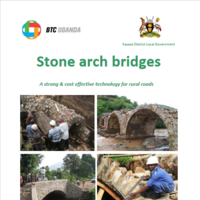Search
Books+
Searching 1,730 books
Search related to the career Civil Engineer
Duties of a Civil Engineer:
1. Designing and Planning: Civil engineers are responsible for designing and planning various infrastructure projects such as roads, bridges, buildings, airports, and water supply systems. They analyze project requirements, conduct feasibility studies, and create detailed designs.
2. Project Management: Civil engineers oversee the entire lifecycle of a construction project. They manage budgets, timelines, and resources to ensure projects are completed efficiently and within specified guidelines.
3. Site Investigation: Before starting a project, civil engineers conduct site investigations to assess the suitability of the land for construction. They analyze soil conditions, topography, and environmental factors to determine the best approach for the project.
4. Structural Analysis: Civil engineers perform structural analysis to ensure the safety and stability of infrastructure. They use mathematical calculations and computer simulations to assess the strength and durability of structures, ensuring they can withstand various loads and environmental conditions.
5. Construction Supervision: Civil engineers supervise construction activities to ensure compliance with design specifications, building codes, and safety regulations. They collaborate with contractors, architects, and other professionals to resolve any issues that may arise during construction.
6. Quality Control: Civil engineers monitor and maintain quality standards throughout the construction process. They conduct inspections, perform tests, and review construction materials to ensure they meet the required standards and specifications.
7. Environmental Considerations: Civil engineers take into account environmental factors when designing and implementing projects. They strive to minimize the impact on the environment, promote sustainability, and incorporate eco-friendly practices into their designs.
8. Risk Assessment: Civil engineers assess potential risks and hazards associated with construction projects. They develop strategies to mitigate risks and ensure the safety of workers, the public, and the environment.
9. Research and Development: Civil engineers engage in continuous research and development to stay updated with the latest technologies, materials, and construction methods. They strive to incorporate innovative solutions into their projects to improve efficiency and sustainability.
10. Documentation and Reporting: Civil engineers maintain accurate records, prepare technical reports, and document project progress. They communicate effectively with stakeholders, clients, and regulatory authorities to provide updates and ensure compliance with legal requirements.
These are some of the key duties performed by civil engineers in their profession.
Source: Various AI tools
Engineering
Books tagged engineering
Searched in English.













